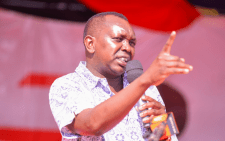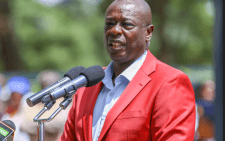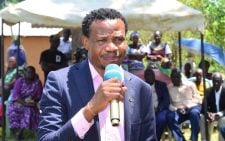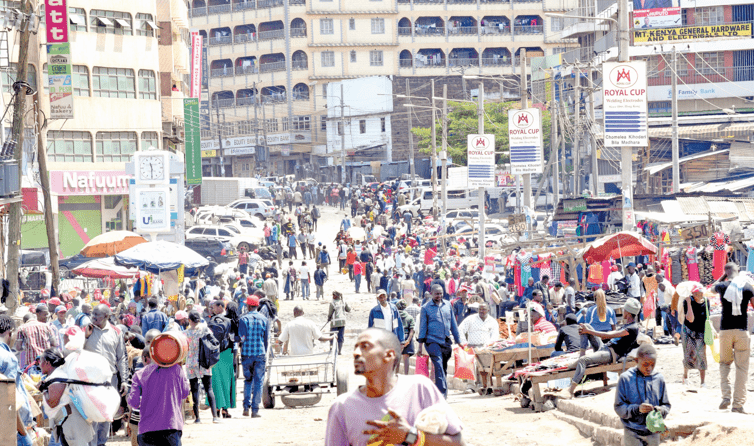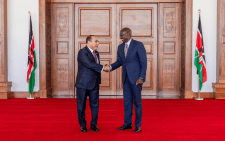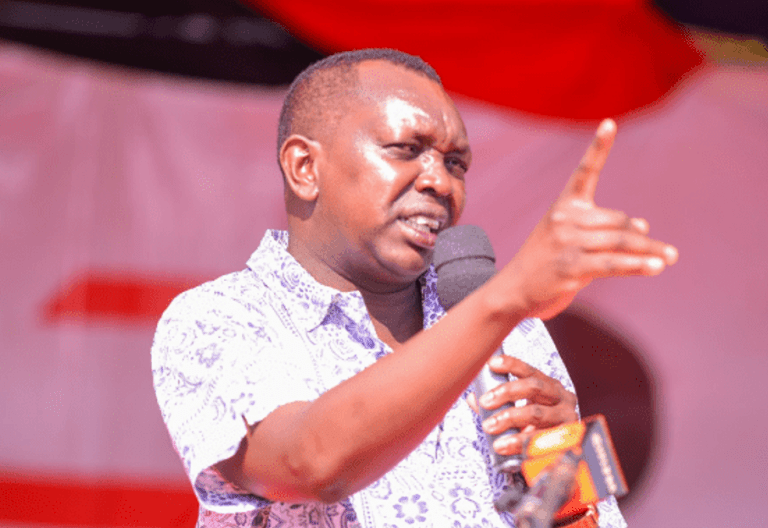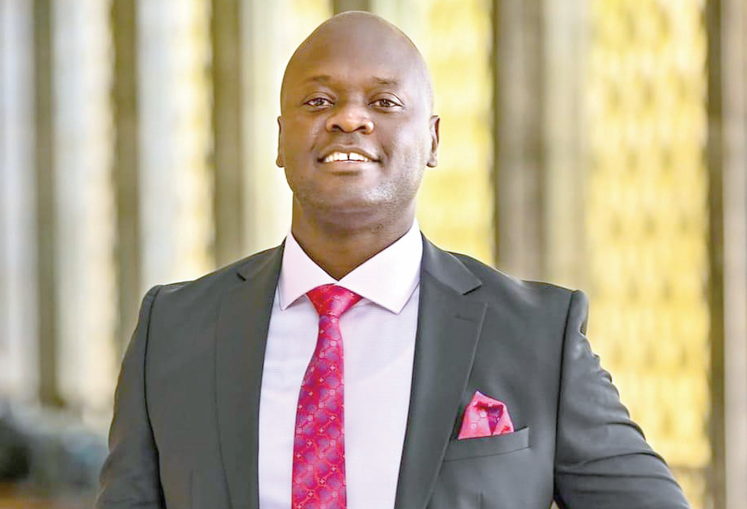Ruto outlines his plan for the next six months
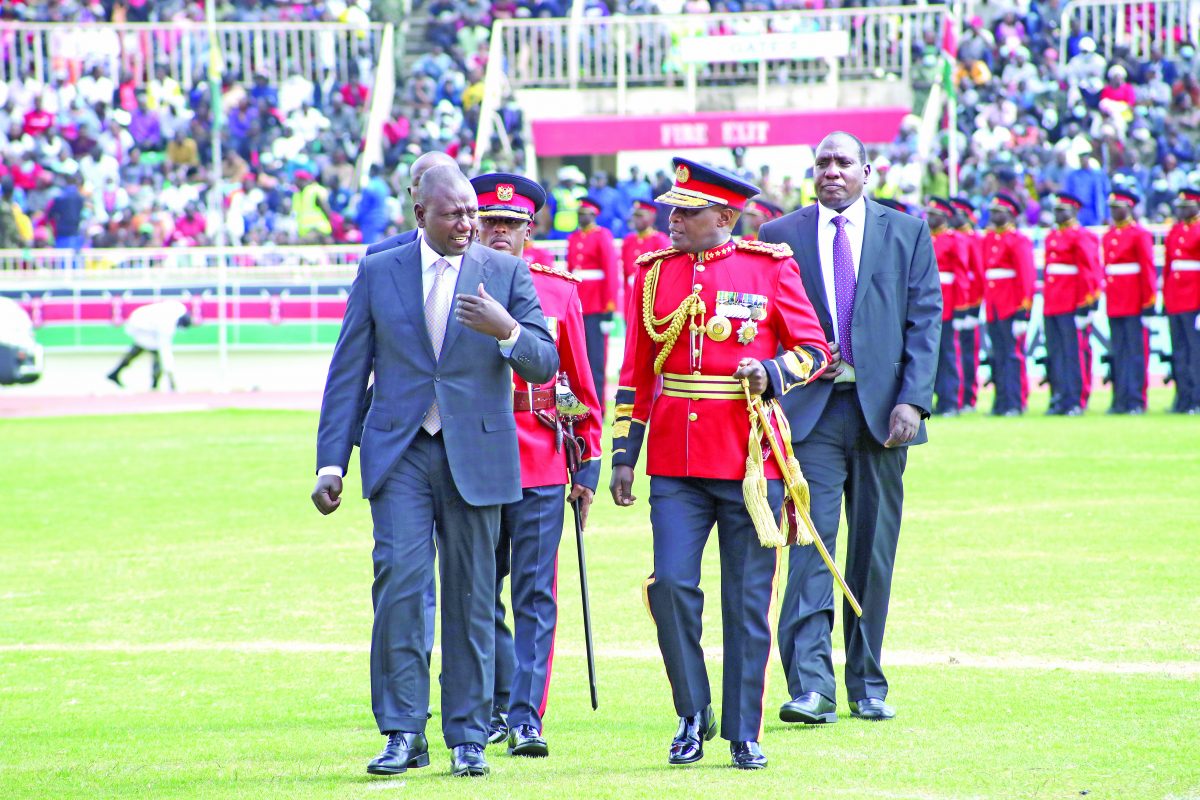
President William Ruto yesterday said Kenyans will access all government services digitally in the next six months even as he told off Opposition chief Raila Odinga for criticising the Hustler Fund.
In a veiled criticism of Raila—his main challenger in the August presidential contest—Ruto said those opposed to the kitty are malicious and only want to deny Kenyans the opportunity to borrow from the digital platform at low-interest rates.
Raila had last week described the fund as illegal while his allies have said Kenyans who borrow from the Sh50 billion fund are not legally obligated to repay as there is no law in place to regulate its operations.
However, during his address to the nation to mark the 59th Jamhuri Day national celebrations at Nyayo National Stadium, Ruto yesterday said following the successful launch of the fund, the government has taken steps to ensure 85 per cent of government services that are yet to digitised would soon be made accessible via digital platforms so that Kenyans can access them from the comfort of their homes.
As of yesterday, the Hustler Fund had disbursed Sh7.5 billion, with 15.4 million Kenyans having signed up and Sh1.1 billion having been repaid and another Sh400 million mobilised in savings.
“Kenyans have found a platform to save. Clearly, Kenyans know the value of borrowing and paying contrary to the rhetoric of sceptics. By all accounts, this is revolutionary,” the President said.
“I want to ask fellow leaders, you are borrowing from your banks at a very high-interest rate almost 300 per cent. Why do you want to derail ‘hustlers’ who are suffering from shylock and predatory funds by paying interest rates of 300 per cent yet they can pay at eight per cent?” he asked.
“Do not allow those Kenyans who have been suffering to continue suffering.”
He was responding to Raila who, while addressing an Azimio rally at Kamukunji Grounds in Nairobi last Wednesday, spearheaded calls for Kenyans to reject the fund.
Raila, accompanied by Wiper leader Kalonzo Musyoka and his Narc Kenya counterpart Martha Karua, said loans under the Hustler Fund were inadequate to support any meaningful business ventures. They also questioned why the money had to be repaid in a fortnight.
“We had promised Kenyan households who are at the lower cadre that we were to disburse Sh6,000 per month. In the Hustler Fund, you are given Sh500 to start a business. Is it really adequate to start any meaningful business?” asked Raila.
However, during yesterday’s celebrations — whose theme was pegged on technology and innovation — Ruto said the decision to focus on the theme was based on views Kenya Kwanza Alliance collected during the coalition’s campaigns ahead of the August 9 General Election.
To make the digital promise come true, he said, the government intends to build a 100,000-km digital superhighway to enable Internet connectivity in homes and businesses. This, the President said, will ensure that Kenyans can access services without having to queue in halls or go through brokers.
Digital space
For instance, over 1.3 million farmers will access fertilizer subsidy programmes through an e-voucher system to eliminate cartels. Through the digital space, the government also intends to create over a million jobs.
On the Digitisation of government records, Ruto said this would also see Universal Health Coverage being anchored on the platform to improve health services.
“We intend to transfer 85 per cent of remaining government services to digital spaces so that Kenyans everywhere will not have any barriers to access services,” he told yesterday’s celebrations, which were attended by tens of thousands of Kenyans.
“In six months digitisation of government records will be done such that it will be possible for Kenyans to access services from their homes using Internet services.”
Ruto also highlighted measures the government had put in place to deal with various challenges affecting the country.
On the high cost of living, he said the government had come up with a three-pronged approach to bring down the prices of basic commodities.
The first was to encourage farmers to access subsidised fertiliser, the second was to allow the importation of 10 million bags of different assorted food products, including maize, beginning next year while the third was together with the private sector, to allow the importation of six million bags of fertiliser.
Already, a consignment of two million bags has landed at the port of Mombasa, and the remaining four million will arrive in the first week of January. So far, the government has identified 100 dams in various parts of the country in the quest to double the land under irrigation from the current 670,000 acres, and progressively increase it to three million to liberate agricultural production from dependence on rainfall and vulnerabilities caused to drought and other effects of climate change.
Ruto underscored the government’s commitment to restoring the former glory of cotton-producing regions by revamping textile and apparel industries and reviving cotton farming by providing high-yielding, disease and pest-resistant hybrid varieties of seeds.
The government was also committed to making housing more affordable to enable more Kenyans to live in safe and dignified homes and create millions of jobs and entrepreneurship opportunities.
To this end, Ruto said, the government expects to increase the supply of affordable housing at the rate of 200,000 new units every year.
This will lower the cost of living for urban dwellers by giving the majority of Kenyans access to houses they can buy at monthly instalments of between Sh2,500 and Sh10,000.
Mentorship opportunities
On job creation, Ruto said the Kenya Industrial Estates will provide coaching and mentorship opportunities to 100,000 entrepreneurs and provide information and networking opportunities to 250,000 youth.
To combat climate change, he said the government has commenced plans to grow 15 billion trees on 11 million hectares in every part of Kenya by 2030.
This will increase the national tree cover from the current 12 per cent to 30 per cent over that period.
And working with the County Government of Nairobi, the government will recruit at least 11,000 youths under the Kazi Kwa Vijana programme to grow 1.5 million trees in the city’s public spaces as part of the dream of greening the capital, once known as the Green City in the Sun. On credit, the President said he had secured agreements with lenders to stop the blacklisting of more than four million borrowers by Credit Reference Bureaus.
“I engaged three Fintech institutions on the way forward in making mobile loans more affordable. As a result, there was a drastic reduction in the interest charged on the Fuliza service, signalling a new era of affordable credit,” he said.
The President said the Kenya Revenue Authority is implementing a new tax administration policy, which has seen manufacturing firms earlier shut down over tax disputes re-opened. In turn, this has injected much-needed revenue into the economy, returning thousands of workers to their jobs.
On sports and arts, the Head of State said they had moved with speed to get football back, protect Kenya’s proud athletics history from doping, and streamline the collection and distribution of royalties to artistes.
Regionally, he said, Kenya’s consistent record of leadership to advance the cause of peace, cohesion, security and stability had been acknowledged.
“My predecessor, President Uhuru Kenyatta, working under the aegis of the African Union, is engaged in mediation efforts to restore peace and stability in Ethiopia’s Tigray region and, under the EAC initiative, to restore normalcy in the Eastern Democratic Republic of Congo,” he said.
This, he said, boosts Kenya’s agenda “to attract investments, forge partnerships and create markets for our exports and employment of our youth”.

